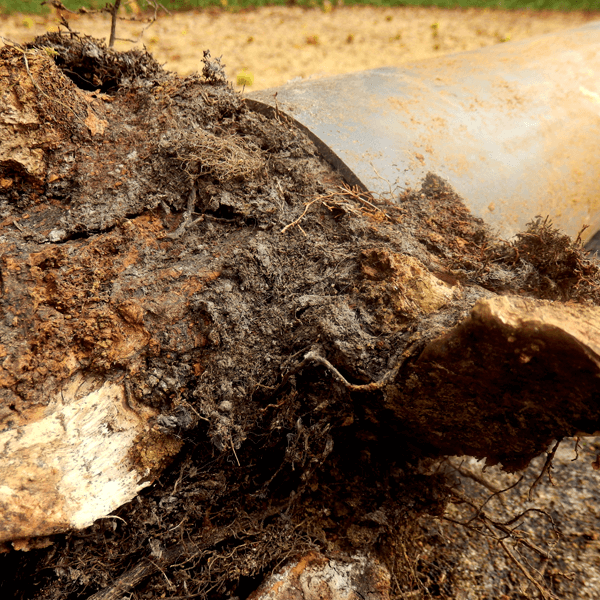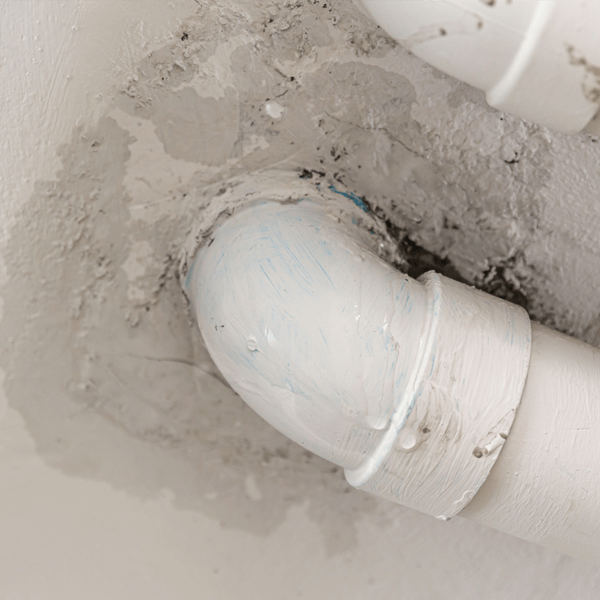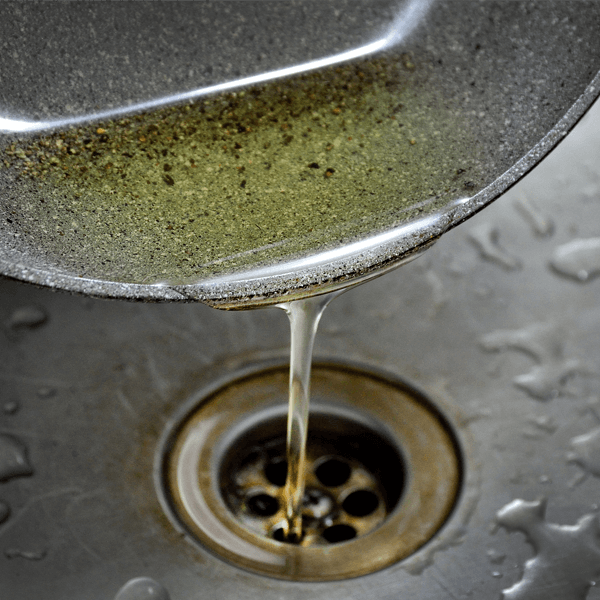I think it is safe to say that a sewage back up in the home is not something any of us want to ever experience. When wastewater leaves our homes we take it for granted that it will enter the sewage system and keep going until it reaches a treatment facility. Unfortunately sometimes it encounters a problem, which causes it to be pushed back up the line and into your home.
A sewage backup in your home can have catastrophic effects on people in the home and the building itself if it is not dealt with quickly. This article goes into more detail about this later on.
So what are the causes of sewage back up? It's important to be aware of them in order to possibly mitigate your chances of it happening to you.
Tree roots
Tree roots are one of the most common reasons why people experience a sewage backup in their homes. Roots are naturally drawn to water sources, so they often head towards sewage pipes where they can wrap themselves around them, crushing and breaking them. They can also find their way through small cracks or loose joints in the underground pipes and start growing inside the pipes. As they get bigger they will either completely block the pipes or put so much pressure on them that they crack, causing them to collapse.

Common signs that there is a problem with roots in your sewage pipes is if you hear gurgling sounds coming from your toilet or if baths or sinks drain slowly, even after you have cleared them.
Faulty plumbing
We all know that plumbing needs to be done correctly to ensure no leaks, especially when it comes to sewage. If there is a fault in the pipework that removes sewage from your property, it can cause the wastewater that you flush and drain away to go to places in your home you really would rather it didn’t. It can come back up through the toilet or sinks and into your home or even find its way into your wall cavities.

Make sure when you are looking into finding someone to carry out plumbing works in your home that they have the correct qualifications to carry out the work. It is also worth searching for them online to see if you can find reviews or examples of previous work. If they are an experienced company, then generally there shouldn't be faults in their work, however if it does happen, a professional plumber will have the correct insurance in place to cover all the costs associated with getting the problem fixed.
Blocked drains
As mentioned before, tree roots are a big problem when it comes to blocked drains. There are however a large number of other reasons why drains get blocked, if sanitary products, nappies or paper towels are flushed they can cause the pipes to become clogged. Pouring cooking fats or grease down the sink is also another cause of blocked drains, as is hair. The blocked drain stops the wastewater from going into the main sewer system and causes it to back up into the home.

There are a number of things you can do to reduce the chances of getting a blocked drain. Never pour cooking fats or grease down the sink, even if you rinse with hot water and soap the fat and grease can still solidify once it cools. If you have a problem with hair going down the drain you can buy drain covers to use when showering or bathing to stop this. Never flush sanitary products, paper towels or nappies.
Large volumes of water entering the sewage system quickly
Heavy rainfall and snow can result in large volumes of water entering the sewage system at speed. It happens so fast that it becomes too much for the drainage system to handle, causing the water to flow backwards through the pipes into homes.
What are the signs of sewage back up?
It is important to be aware of the signs of a sewage back up, so you can recognise them and deal with them before the wastewater has a chance to back up into your home. If you notice something is wrong, you should take immediate action and call in the professionals before it becomes a bigger issue.
Signs that there may be a problem include:
Nasty ‘sewage’ smell - if you can smell unpleasant sewage water in your home, near sinks or toilets or coming from drains then it could be a sign that there is a problem. Any nasty smells should flow away from your home along with the waste, if it is lingering then there could be an issue and it is worth getting a professional to inspect it.
Bubbling toilets and drains - if you notice your toilets or drains are bubbling then this could be a sign that there is an issue with pipes being partially blocked, which could lead to the sewage backing up into your home if it is not rectified quickly.
Slow draining water - if you notice that water is draining away slowly, then you need to find out what the problem is. It could just be internal pipes that need unblocking, however if you have done this and the water is still draining slowly then it could be a sign of a problem further along the pipes. You are more likely to notice a problem in the lower level drains in your home if it is a problem related to sewage back up.
What you can do if you experience a sewage backup in your home
Call in the professionals. With the dangers involved it is not worth putting yourself at risk. A professional cleaning company will deal with all aspects of the clean up for you, follow all safety regulations and they will have all the required Personal Protective Equipment (PPE). They will also provide you with a certificate to confirm the service they have provided which can be forwarded to insurance companies.
You will need to contact your insurance company as soon as you can and it may benefit you to take some photos.
There are some things you can do if you discover sewage in your home, but only if it is safe to do so
- Block off the area. Keeping people and animals away, not only to keep them safe but to prevent any sewage water being trodden elsewhere through your home.
- Stop any further wastewater from being flushed or drained away.
- Turn off the water supply.
- Turn off the electricity supply to the affected area.
Why is sewage harmful to people?
Sewage water is also referred to as black water, this is the most hazardous water you could have entering your home. Black water contains human waste, bacteria, toxins and pathogens. It is incredibly harmful to human health, if it comes into contact with skin it can cause skin irritations. If airborne contaminants are inhaled over a long period of time, it can cause serious illnesses, long term respiratory problems or even death.
What damage can sewage water do to properties?
Any type of water damage to your home can be a nightmare, but when it is black water it is so much worse due to how hazardous this type of water is.
All porous items in the home, carpets and most items of furniture that have come into contact with the water or even some of those close by, will need to be disposed of. If it is something valuable to you, there are companies that may be able to restore it, although they would need to know it had been contaminated with black water so they can treat it accordingly.
Water can cause wood to swell and rot and with any water damage there's the possibility of mould growth. Mould can grow on most surfaces and even on the inside walls damaging the structure of your home. The chances of this are higher with black water because of the contaminants already in the water.
Most home insurance policies will cover the cost of a sewage clean up. However, it is important to be aware that if the clean up isn’t done professionally, it may not be done thoroughly which can cause long term damage to a property, which insurance companies may not cover.
Flood Dr offers a professional, rapid, emergency sewage clean up service, as well as other water damage remediation and restoration services.






